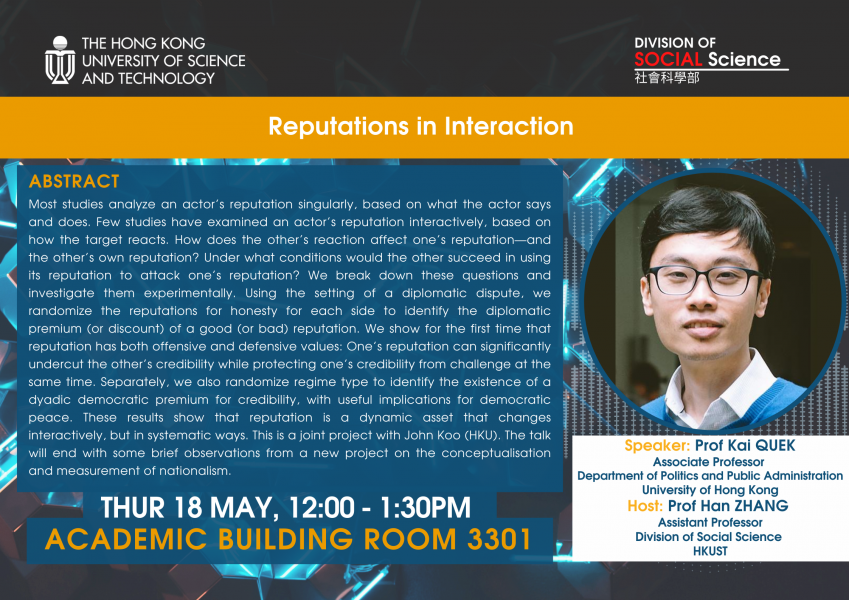Most studies analyze an actor’s reputation singularly, based on what the actor says and does. Few studies have examined an actor’s reputation interactively, based on how the target reacts. How does the other’s reaction affect one’s reputation—and the other’s own reputation? Under what conditions would the other succeed in using its reputation to attack one’s reputation? We break down these questions and investigate them experimentally. Using the setting of a diplomatic dispute, we randomize the reputations for honesty for each side to identify the diplomatic premium (or discount) of a good (or bad) reputation. We show for the first time that reputation has both offensive and defensive values: One’s reputation can significantly undercut the other’s credibility while protecting one’s credibility from challenge at the same time. Separately, we also randomize regime type to identify the existence of a dyadic democratic premium for credibility, with useful implications for democratic peace. These results show that reputation is a dynamic asset that changes interactively, but in systematic ways. This is a joint project with John Koo (HKU). The talk will end with some brief observations from a new project on the conceptualisation and measurement of nationalism.
Speaker: Prof Kai QUEK, Associate Professor, Department of Politics and Public Administration, University of Hong Kong
Kai Quek studies strategic interactions in international relations, with a focus on US-China interactions. He is especially interested in (1) state-to-state signaling, (2) the dynamics of deescalation, and (3) the origins of collective beliefs such as nationalism. His theoretical research on signaling has established new signaling mechanisms beyond those previously established in political science. His experimental research on deescalation has produced the first large-scale experiment in international security that cuts into a live real-world dispute, measuring the nationalistic backlash leaders face for backing down in a territorial crisis, and testing the strategies the government can use to reduce the backlash and decrease the risk of war. He serves as Chair of the Departmental Research Postgraduate Committee, associate editor for the Japanese Journal of Political Science, and on the Board of Editors for International Organization.
Host: Prof Han ZHANG, Assistant Professor, Division of Social Science, HKUST

